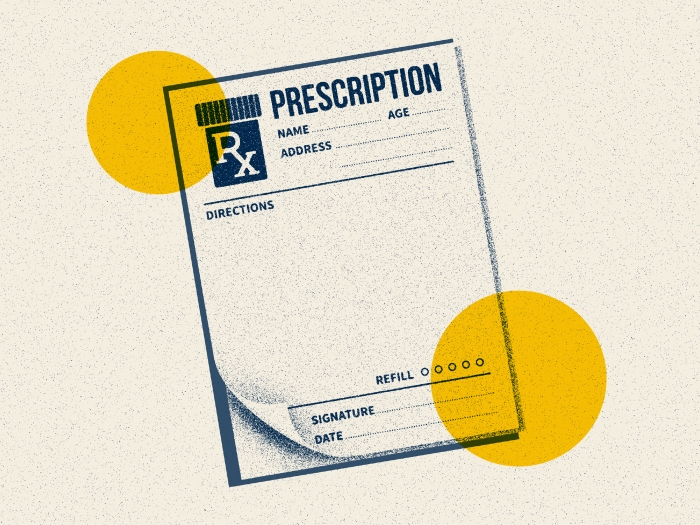The study examines direct oral anticoagulants, which are prescribed to more than two-thirds of people taking blood thinners
5:00 AM
Author |

For people taking popular blood thinners after having a blood clot, a reduced dose may limit the future risk of bleeding as well as hospital visits, a Michigan Medicine-led study suggests.
The research team focused the study on the two most prescribed direct oral anticoagulants, or DOACs, rivaroxaban (brand name Xarelto) and apixaban (brand name Eliquis).
Investigators analyzed nearly1,000 cases of patients who were treated for a blood clot, also known as venous thromboembolism, and who were taking the medications to prevent one from recurring.
Some patients had their doses reduced after six months, while others stayed on the full therapeutic dose.
While both treatments resulted in a similar rate of recurrent clotting, the therapeutic dosing of either DOAC was associated with an increased risk of bleeding, emergency department visits and hospitalizations compared a reduced dose.
The results were presented as an abstract at the 2024 American Society of Hematology Annual Meeting & Exposition.
“These popular DOACs can be lifesaving treatments, but they come with an increased risk of bleeding and must be carefully monitored when prescribed to patients,” said lead author Jordan K. Schaefer, M.D., M.Sc., clinical associate professor of internal medicine-hematology at University of Michigan Medical School.
“While previous studies have shown that rates of recurrent venous thromboembolism did not change when the DOAC dose was reduced after six months, our results suggest a higher risk of bleeding events and health care utilization for patients continuing therapeutic dosing. This raises a question if dose reduction could be beneficial for some patients.”
In 2021, the American College of Chest Physicians released clinical guidelines that suggested reduced dosage of either apixaban or rivaroxaban for extended management of blood clots, noting this was a “weak recommendation” with “very low certainty evidence.”
The findings support the 2021 guidelines.
The research team notes, however, that they need to be confirmed with randomized trials.
“In the absence of randomized trial data, these results provide the best supporting evidence that we can safely reduce the dose of DOACs in many patients to prevent recurrent VTE and avoid bleeding complications,” said Geoffrey Barnes, M.D., M.Sc., senior author and associate professor of cardiology-internal medicine at U-M Medical School.
Additional authors: Josh Errickson, Ph.D., Xiaowen Kong, M.A., Naina Chipalkatti, M.D., Brian Haymart, R.N., M.S., Suman L Sood, M.D., MSCE, James Froehlich, M.D., M.P.H., all of University of Michigan, Cherise Callahan, PharmD, of Saint Joseph Mercy Ann Arbor, Christopher Giuliano, PharmD, M.P.H., of Wayne State University, Mona A Ali, PharmD, of Corewell Health William Beaumont University Hospital, Scott Kaatz, D.O., M.Sc., Gregory D Krol, M.D., and Noelle Ryan, PharmD, all of Henry Ford Health.
Funding/disclosures: The data for the study was collected through the Michigan Anticoagulant Improvement Initiative, a statewide quality improvement collaborative funded by Blue Cross Blue Shield and Blue Care Network of Michigan. Blue Cross Blue Shield of Michigan and Blue Care Network provided funding for data abstraction and statistical analysis as part of the BCBSM Value Partnership program.
Sign up for Health Lab newsletters today. Get medical tips from top experts and learn about new scientific discoveries every week.
Sign up for the Health Lab Podcast. Add us wherever you listen to your favorite shows.

Explore a variety of health care news & stories by visiting the Health Lab home page for more articles.

Department of Communication at Michigan Medicine

Associate Professor


Want top health & research news weekly? Sign up for Health Lab’s newsletters today!





